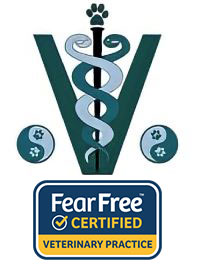Library
-
Ultra-micronized palmitoylethanolamide (PEA-um), brand name Redonyl Ultra, is a nutraceutical used to support skin health in dogs and cats. PEA-um comes in oral chewable and powder forms. It is used "off label" or "extra label".
-
Ultrasound uses the reflection of sound waves to generate an image of internal structures, allowing for identification of masses, pregnancy diagnosis, abnormal heart function and muscle size, abnormalities of the orbit, and abnormal appearance of abdominal organs. Ultrasound results can be analyzed in real time; however, assessment by a radiologist may take several days. Ultrasound is an invaluable tool to detect problems in a non-invasive fashion.
-
Ultrasound uses the reflection of sound waves to generate an image of internal structures allowing for identification of masses, pregnancy diagnosis, abnormal heart function and muscle size, abnormalities of the orbit, and abnormal appearance of abdominal organs. Ultrasound results can be analyzed in real time; however, assessment by a radiologist may take several days. Ultrasound is an invaluable tool to detect problems in a non-invasive fashion.
-
An umbilical hernia is a protrusion of the abdominal lining, abdominal fat, or a portion of abdominal organ(s) through the area around the umbilicus. An umbilical hernia can vary in size from less than a ¼” (1cm) to more than 1” (2.5cm) in diameter. Small (less than ¼” or 1cm) hernias may close spontaneously (without treatment) by age 3 to 4 months. If the hernia has not closed by the time of spaying or neutering, surgical repair of the hernia is recommended and prognosis is excellent.
-
An umbilical hernia is a protrusion of the abdominal lining, abdominal fat, or a portion of abdominal organ(s) through the area around the umbilicus. An umbilical hernia can vary in size from less than a ¼” (1cm) to more than 1” (2.5cm) in diameter. Small (less than ¼” or 1cm) hernias may close spontaneously (without treatment) by age 3 to 4 months. If the hernia has not closed by the time of spaying or neutering, surgical repair of the hernia is recommended and prognosis is excellent.
-
Controlled substances are medications or illicit drugs that affect the central nervous system and have the potential for abuse or dependence, both in humans and in animals. These drugs are often needed to manage pain and other conditions in pets and are relatively safe when used appropriately and under the guidance of a veterinarian. Be sure you understand the risks and responsibilities associated with controlled substance use.
-
Cats exhibit a wide range of behaviors that are quite normal yet may be considered undesirable by the people with whom they share their homes. Most of these behaviors develop to satisfy an innate need. Rather than trying to stop your cat from engaging in instinctual and naturally rewarding behaviors, it is essential to provide your cat with substitute behaviors and outlets that satisfy your cat’s needs.
-
Considerations When Getting a Second Cat
Me gustaría tener un gato, pero alguien me ha dicho que debería coger dos, ¿es verdad? Los gatos se consideran tradicionalmente criaturas solitarias, pero a pesar de que es cierto que en su conducta manifiestan aspectos de independencia, se sabe que en realidad son animales sociales que disfrutan de la interacción con individuos de su misma o de otra especie.
-
The anconeal process is a small projection of bone on the ulna, the longer of the two bones of the forearm. If the anconeal process does not fuse to the rest of the ulna correctly during growth, it causes a condition called ununited anconeal process (UAP). This problem appears to be hereditary mostly in large breeds. When this part of the ulna does not fuse, the elbow joint becomes unstable, causing lameness and pain. Treatment requires surgery. Some form of rehabilitation will improve your dog's chances of making a full recovery from surgery and minimize lameness problems.
-
Urate bladder stones are most commonly the result of a genetic abnormality in breeds such as dalmatians. Other causes include liver diseases such as portosystemic shunts. The most common signs that a dog has bladder stones are difficulty urinating and blood in the urine. Strategies for treating urate bladder stones in dogs include medical dissolution and removal. Dogs that have experienced urate bladder stones will often be fed a therapeutic diet for life. Dogs with liver disease will need to be treated appropriately prior to addressing urate bladder stone management.


